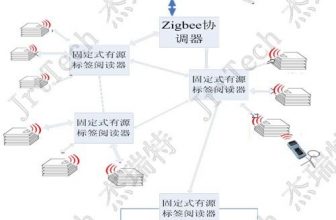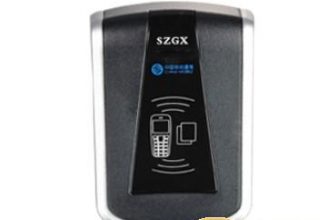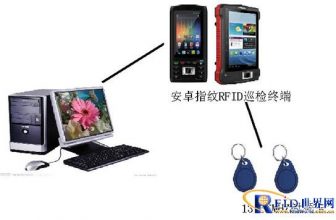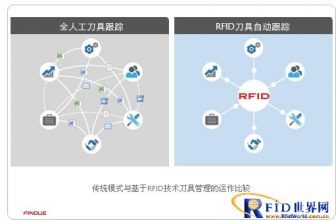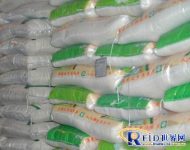
2.4G long-distance RFID warehouse food supervision system solution
[ad_1]
1. Overview of the 2.4G long-distance warehouse grain supervision system
The safe storage of food is a strategic matter related to the national economy and people’s livelihood, and scientific food preservation has important social significance and economic value. During grain storage, due to changes in the environment, climate, and ventilation conditions, the temperature or humidity in the granary will be abnormal, which can easily cause the grain to rot or cause pests. At the same time, the quality of grain storage in the granary is also affected by factors such as gas, microorganisms and other pests in the granary. At present, my country’s grain storage has disadvantages such as safety and difficulty in quality and quantity storage. In order to ensure that the grain warehouse has a normal temperature and humidity environment, it is necessary to monitor the temperature in the warehouse, including the temperature and humidity in the grain. In the traditional granary monitoring system, the granary and the monitoring center mostly use RS-485 and other wired data communication methods. However, in actual work, there are hundreds of temperature measuring devices in a warehouse that are connected to make the warehouse a spider web. After the grain is transported, a lot of manpower and material resources are needed to reposition it, and it is also easy to cause damage to the equipment. Moreover, the system has poor anti-interference, many connections, and difficulty in expansion; sometimes when a node has a problem, it will affect the entire system, which is not conducive to the monitoring and management of the granary.
To this end, our company has launched a “Warehouse Grain Supervision System” solution based on 2.4G long-distance radio frequency technology. The system is safe and stable, and easy to operate. It only needs to use the special temperature and humidity tags produced by the company and the corresponding card reader. At the same time, only a few transmission lines are required in the warehouse. Data transmission only needs to be done wirelessly.

2. Introduction to 2.4G Long-distance RFID Warehouse Food Supervision System
Adopt ourRFIDAfter the system, the method of uploading data by wireless transmission will be completely realized. This method greatly improves the shortcomings of the original wired method. It does not increase the original investment but also saves a lot of use and maintenance costs, making the granary management more effective. A brand new step.
1. System composition
The warehouse grain supervision system mainly completes the functions of collecting and storing grain temperature, humidity and gas concentration and other parameters, transmitting data to the monitoring center, and executing the instructions of the monitoring center. The system consists of the following parts:
The electronic tag inserted into the grain: made by the 2.4G long-distance radio frequency card produced by Boao Electronics. The radio frequency card is a temperature and humidity electronic label. This label is equipped with a temperature and humidity sensor. It collects the temperature and humidity in the warehouse into the label. The method of use is to insert it directly into the grain.
Labels installed in the warehouse: made by radio frequency cards produced by Boao Electronics. Install according to the spatial layout of the warehouse.
Card reader: It is produced by Boao Electronics, and its interface has RS232/RS485 interface. Installed in the warehouse (can provide wireless WI-FI, GPRS and other communication methods)
Grain monitoring system: the computer provided by the customer and the system-specific supporting software provided by the company. For the software part, customers can also design, and our company can provide relevant information.
2. The working principle of the system
First, put the temperature and humidity electronic tags produced by our company in the grain in the warehouse, and at the same time, install some electronic tags and card readers in the warehouse outside the grain, and confirm the connection of other lines to complete the installation of the system. In normal work, the tag will collect the information of the warehouse grain conditions, such as grain temperature and humidity, warehouse temperature and humidity, etc., and continuously send the information wirelessly, so that it can be received by a card reader installed nearby This information is transmitted to the system center, and then the information is transformed into intuitive information through the software of the system center, which is convenient for analysis and viewing, and at the same time, it provides the most favorable information basis for the next decision, thus realizing scientific automation. Management.
Three, system characteristics
1. Excellent performance
Active identification card, high recognition reliability, 100% front-end recognition rate.
The active card recognition distance is long (10-50 meters), and the recognition distance is easily realized within 10 meters. Due to the actual situation of the warehouse, the card reading distance should not be too long. This solution does not need to use a hand-held card reader to be placed next to the tag, and can fully realize fully automatic identification; extremely high anti-collision (can identify 300 active cards at the same time), high recognition stability (error rate is less than one hundred thousandths) ), truly achieve no error codes and no missing cards; timeliness and comprehensiveness, the use of this system can comprehensively monitor the temperature and humidity inside the grain in real time, and can timely understand whether the temperature and humidity changes are abnormal, so as to take corresponding remedial measures in time . Improve the management level, centralized management, distributed control; standardize the supervision and management of grain storage, and improve the transparency and scientific nature of management.
2. High security and stability
High reliability: it can operate normally within the ambient temperature of -40℃-+85℃ (MTBF≥70000 hours), especially in the low temperature in the north and high temperature in the south, it has more advantages, and it can effectively resist high dust in the air in harsh environments It can ensure the normal use of the equipment in environments such as humidity and humidity.
High anti-interference, no special requirements for interference near the warehouse and perimeter environment, strong environmental adaptability; device failure rate is minimized, and operation is reliable
Ultra-low power consumption: long service life, low average cost, maintenance-free, safe and healthy to the human body, no electromagnetic radiation pollution, safer to use. The working mode of the microwave module can be configured, and the transmission power can be adjusted.
3. System implementation benefits
Improve the information literacy and management level of employees; promote the scientific and intelligentization of my country’s grain storage; save storage management costs
Timely handling of food storage quality accidents, timely rescue of food, reducing the occurrence of quality accidents and reducing economic losses
Four, system function
The warehouse item monitoring system can track and query the specific conditions of all items in the warehouse, including temperature and humidity, in real time.
Tracking: real-time tracking of temperature and humidity for a certain food product to ensure that the item is in the best environment
Inquiry: Inquire about the grains in the warehouse according to the needs, in order to more clearly and directly understand the situation of the part of the grain being inquired, and facilitate management and decision-making
Modification: The basic system information of the stored grain can be modified. The modification information includes: the type of grain, the name of the grain, and the suitable temperature and humidity of the grain, etc.
Delete: delete the relevant information of the grain that is no longer there.
[ad_2]


